‘약물 상호작용’ 수학 오류 수정
“약물 예측 정확도 개선 기대, 신약개발, 임상에 도움될 듯”
[뉴스 모음 (클릭)] – News
[영문 보도 (클릭)] – News
[논문 링크 (클릭)] – Paper
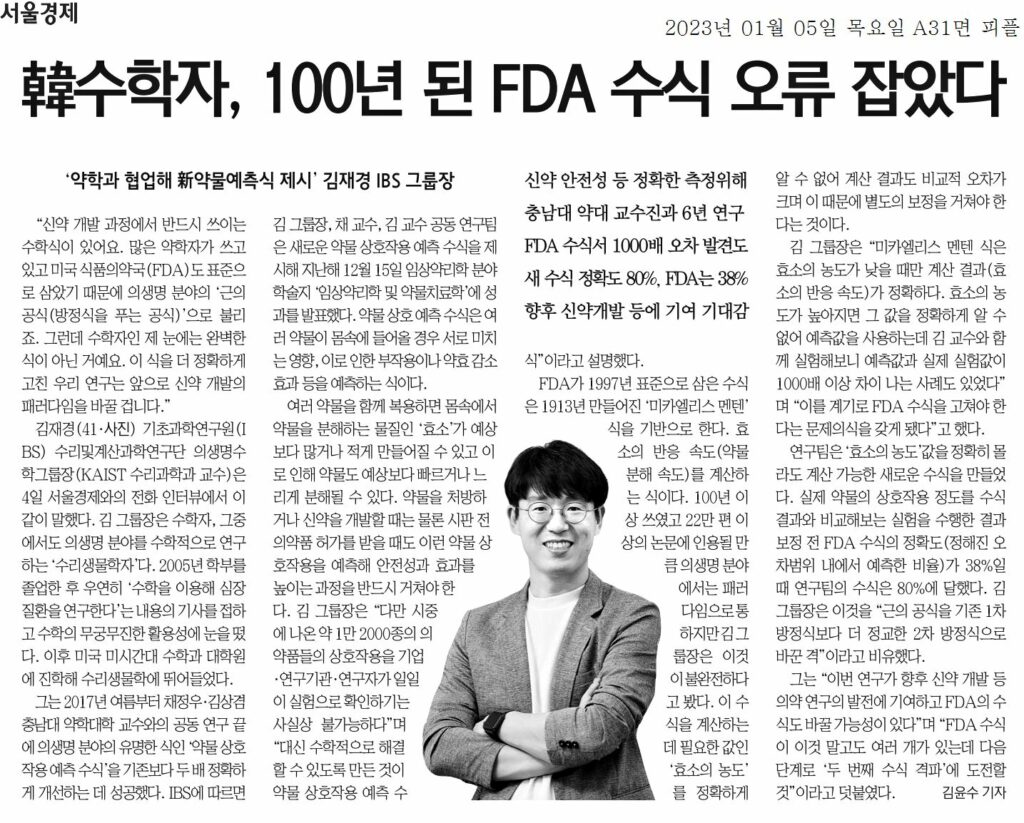

‘약물 상호작용’ 수학 오류 수정
“약물 예측 정확도 개선 기대, 신약개발, 임상에 도움될 듯”
[뉴스 모음 (클릭)] – News
[영문 보도 (클릭)] – News
[논문 링크 (클릭)] – Paper


Pitchayanin Makapawee from Chulalongkorn University finished her internship program (2022.12.05 – 2022.12.30) in our lab.
She gave a talk summarizing her research during the internship.
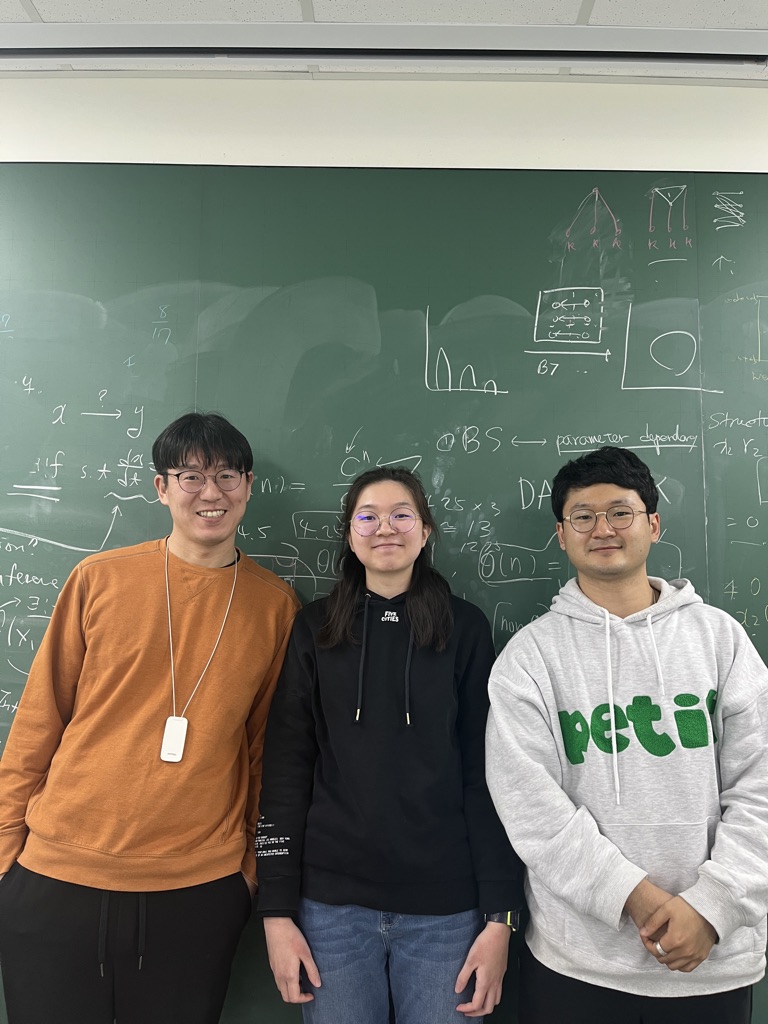
On 1 December 2022, CI Jae Kyoung Kim gave a talk on ‘Global Research Network Seoul 2022,’ where more than 200 global researchers studying in South Korea shared their performance. The title of the talk was “Modeling Successful Interdisciplinary Collaborations: How modelers can help experimental scientists.”
2022년 12월 1일 목요일, 우리 그룹 CI 김재경 교수님이 ‘해외우수과학자유치사업’을 통해 국내에서 연구를 수행하는 31개국 200여명의 글로벌 연구자들의 연구성과를 공유하고 한국과 유대를 강화하기 위해 마련된 ‘글로벌 리서치 네트워크 서울 2022’ 행사에서 “Modeling Successful Interdisciplinary Collaborations: How modelers can help experimental scientists”이라는 제목으로 강연을 진행했습니다.
PRESS: https://mobile.newsis.com/view.html?ar_id=NISX20221201_0002106933
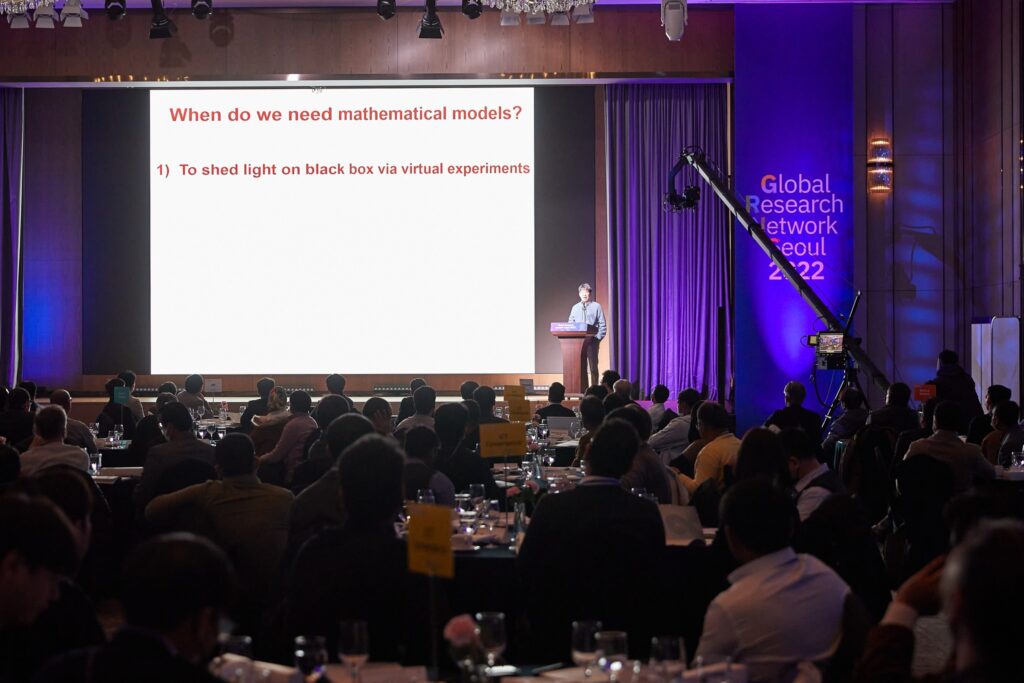
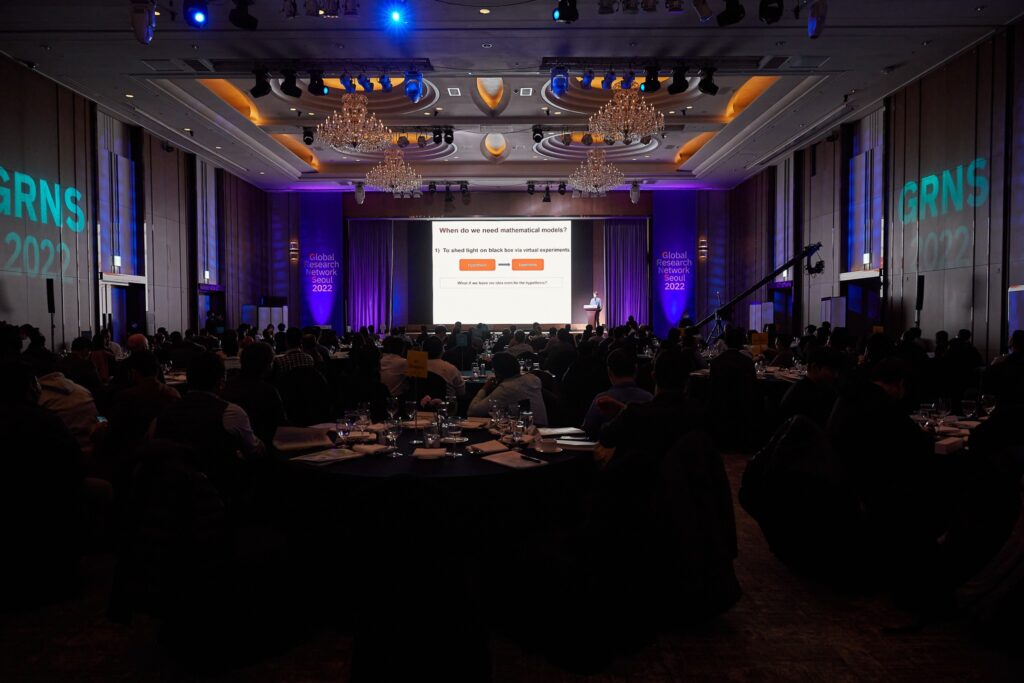
On 9 December 2022, our group’s former member Dr. Dae Wook Kim (advisor: Jae Kyoung Kim, KAIST) won the S-oil best thesis award. His thesis title is “Deterministic and stochastic mathematical modeling and analysis of cellular systems with time delay.” He is now a Van Loo assistant professor at the department of mathematics, University of Michigan.
2022년 12월 9일 금요일, 우리 그룹 출신 김대욱 박사님(지도교수: 김재경, KAIST)이 제 12회 에쓰-오일 우수학위논문상 대상을 수상했습니다. 수상한 학위논문의 제목은 “시간 지연이 있는 세포 시스템의 결정론적 확률론적 수리 모델링 및 분석”입니다. 김대욱 박사님은 현재 미국 미시간 대학 수학과 Van Loo assistant professor로 재직 중입니다.
PRESS: https://www.electimes.com/news/articleView.html?idxno=312631
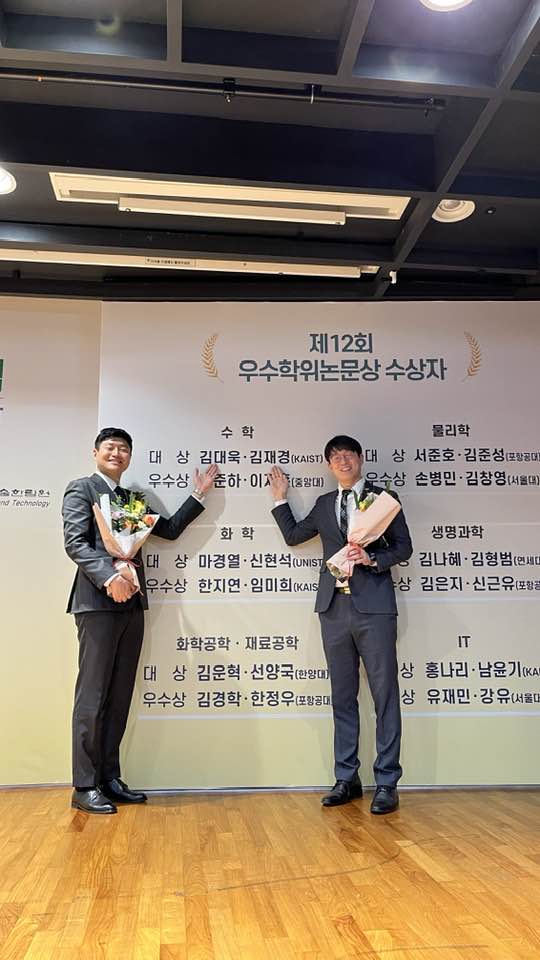
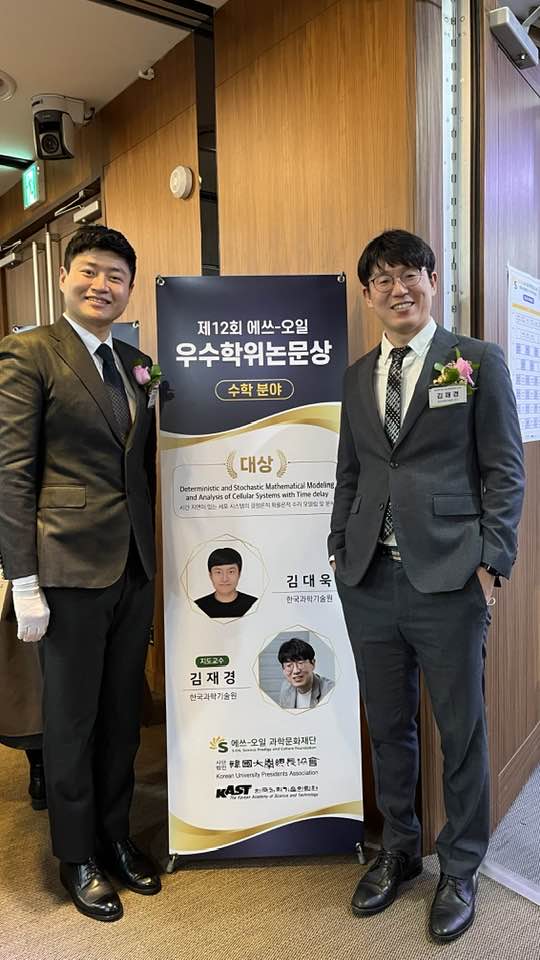
Candan Çelik (Postdoctoral fellow) has joined our group.
He obtained his Ph.D. in applied mathematics from Comenius University in Bratislava, Slovakia. During his doctoral studies, he focused on stochastic models of gene expression.
Welcome!
2022년 10월 29일 토요일 오후 2시, 우리 그룹 CI 김재경 교수님이 “오늘의 과학자가 내일의 과학자를 만나다”라는 의미의 <10월의 하늘> 행사에서 “수학을 왜 배워야할까요? – 복잡한 생명현상을 위한 21세기 현미경, 수학!”이라는 제목으로 강연을 진행했습니다.


2022년 10월 21일 (금) – 22일 (토) 양일간 열리는 군산대학교 기초과학축제에서 김재경 교수님이 “수학을 왜 배워야할까요? – 복잡한 생명현상을 위한 21세기 현미경, 수학!”이라는 제목으로 기초과학 강연을 진행합니다. 교수님의 강연은 10월 22일 오전 11시에 진행됩니다.
From 21 October 2022 to 22 October, the Kunsan University Natural Science Festival will be held. Our group CI, Jae Kyoung Kim will give a public lecture, titled, “Why should we learn mathematics? – the 21st-century microscope for complex biological phenomena, mathematics!”. The talk will begin at 11 AM, 22 October.
Bryan S. Hernandez (Postdoctoral Fellow) has left our group.
We hope to see him again soon.
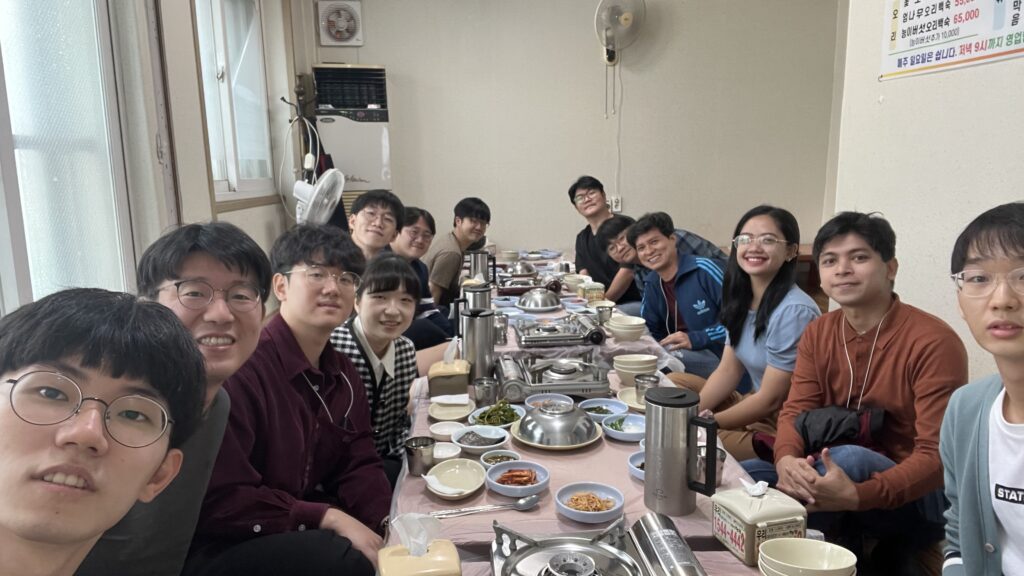
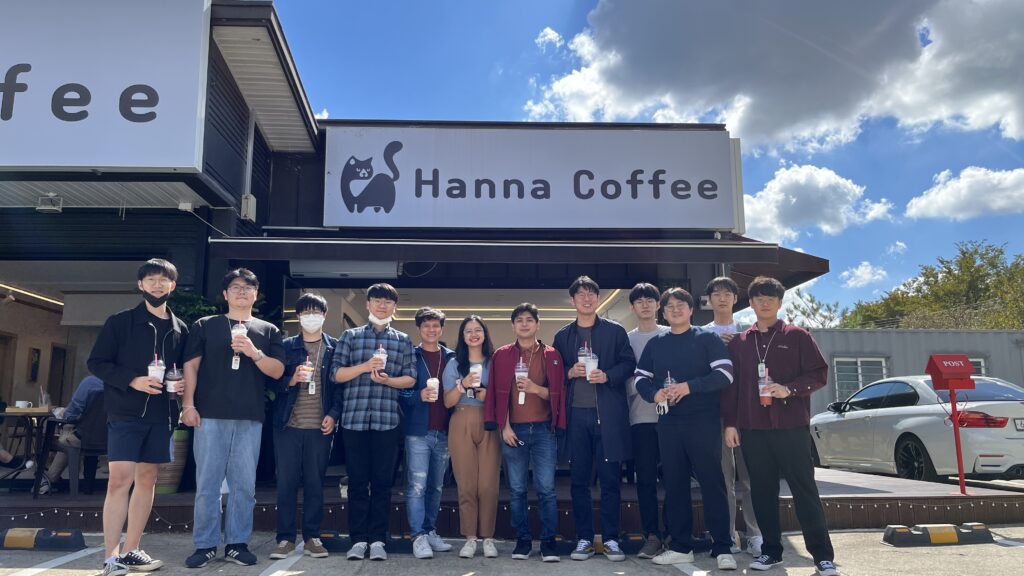
Olive Cawiding (Graduate student) has joined our group.
Olive Cawiding is a graduate student at the department of mathematical sciences, KAIST.
She has got her master’s and bachelor’s degrees from the department of mathematics at University of the Philippines Baguio.
She is a Hyundai motor Chung Mong-koo foundation global scholarship awardee.
Welcome!
Dongju Lim (Graduate student) has joined our group.
Dongju is a graduate student at the department of mathematical sciences, KAIST.
He has also graduated from the department of mathematical sciences and the school of business & technology management at KAIST.
Welcome!